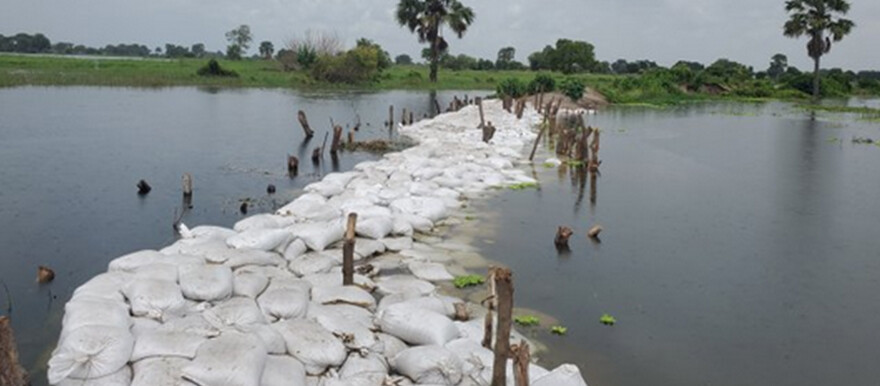The International Organization for Migration (IOM), the Kingdom of Netherlands, and the Government of South Sudan over the weekend launched a new project to address climate change concerns in South Sudan’s Jonglei State, IOM said in a press release.
The project, which will last four years, aims to bolster the government’s capacity to develop warning systems and climate-resilient infrastructure to reduce the impacts of climate change and the onset of flooding.
According to IOM, the initial phase of the project will provide local communities, government, and partners with relevant hydrological data for informed intervention and strengthen the local capacities for better flood risk mitigation. The final phase will include targeted infrastructure development to keep the population safe from floods.
The statement said that more than 100,000 people in Bor town and its surroundings will benefit from the pilot project undertaken by IOM and local partners including indigenous communities in close collaboration with the civil society.
“We are delighted to kick-start a project that will address several technical, capacity, and information base barriers to enhance the effectiveness of flood management systems and reduce exposure to climate risks of vulnerable livelihoods and built environments,” said Peter Van der Auweraert, IOM South Sudan Chief of Mission.
Bor in South Sudan’s Jonglei State and its immediate surroundings have been one of the areas worst affected by flooding in the country. Recent weather and climate-related disasters have resulted in a heavy burden of fatalities, displacing over 500,000 people in 2021 alone.
“After experiencing floods for the last 3 years, we are happy to finally launch this project that will strengthen local capacities and provide infrastructure to protect the people of Bor town,” said Jelte van Wieren, Ambassador of the Kingdom of Netherlands to South Sudan. “With this project, we hope to bring the vast Dutch knowledge in water management to tackle floods in Bor in close collaboration with local actors.”
The project will strengthen the knowledge base on the vulnerability of communities to disaster-related risks and strengthen capacities for effective community response to climate-related shocks through participatory disaster risk management mechanisms and early warning systems. It will also enhance resilience to climate-related shocks through strategic infrastructural interventions in targeted locations.
“We as the government of Jonglei State are happy to hear that IOM will be employing an evidence-based and scientific approach to managing flood-related risk which has been impacting our community,” the acting governor of Jonglei State, Hon. Antipas Nyok said.
According to the statement, South Sudan is still at the nascent stage of accomplishing the environmental and climate commitments required to protect its vulnerable communities from climate-related shocks and natural hazards and has limited opportunities to foster a culture of prioritizing and embedding climate considerations into institutional policymaking and government budget allocations.
The country is already experiencing adverse effects of a warming climate but has limited capacity and resources to prepare and cope with increased climate change.




